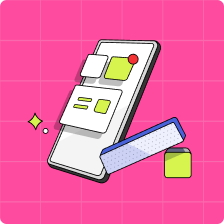FAQ
Financial literacy is important to kids and teens because it gives them the skills and knowledge they need to successfully manage their money. Being financially literate helps kids differentiate between a want vs. a need, helps them understand the value of money, teaches them about earning and investing money, and how to avoid consumer debt. Like any skill, the earlier you learn, the more mastery you’ll acquire.
Talking to your own kids about money can be challenging, especially if your parents weren’t open about the subject. Some tips to help you start talking to your kids about money include: encourage kids to ask questions, let your kids lead the discussion, make the information you share age-appropriate, be honest with your own money mistakes and struggles, and find casual in-the-moment opportunities to discuss money that relate to kids’ and teens’ lives.
Parents can teach children about money management from an early age by introducing physical money in the form of counting coins, playing shop to teach about spending, using a piggy bank or coin jar to teach about saving, and giving kids age-appropriate chores to teach them about earning money. As kids get older these basic concepts of earn, learn, spend, and save can be built upon.
Research shows that kids’ money habits are formed by the age of seven-years-old, so learning how to save money early can benefit kids. Some ways to motivate kids to save include having them set a savings goal to strive for and gamifying their savings by doing a savings challenge like the 50 envelope challenge, or colouring in a printable savings tracker for each $5 they save. Mydoh’s enhanced Savings Goal feature is another way kids can set a goal, practice putting money aside, and visually track their progress. Parents can also motivate their kids to save money by giving them the opportunity to earn money through an allowance.
















